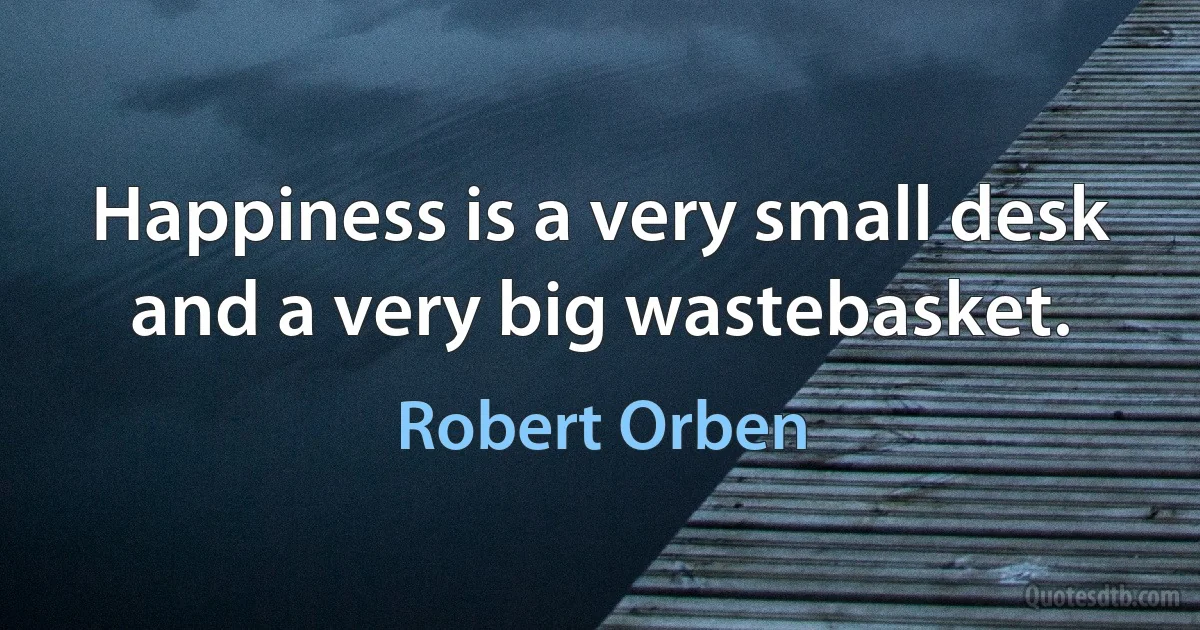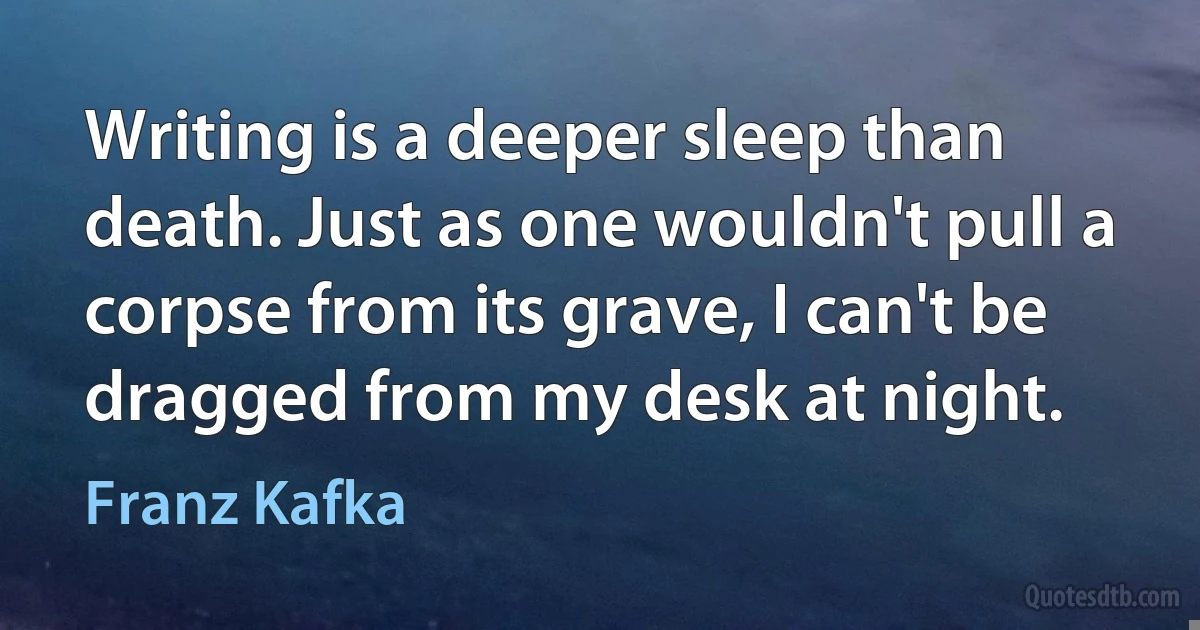Desk Quotes - page 6
They don't make poles long enough for me want to touch Microsoft products, and I don't want any mass-marketed game-playing device or Windows appliance near my desk or on my network. This is my workbench, dammit, it's not a pretty box to impress people with graphics and sounds. When I work at this system up to 12 hours a day, I'm profoundly uninterested in what user interface a novice user would prefer.

Erik Naggum
Early in life, most of us probably observe an unhappy relationship between labor and wealth - to wit, the heavier the labor, the less the wealth.
The man doing heavy manual work makes less than the man who makes a machine work for him, and this man makes less than the man sitting at a desk. The really rich people, the kind who go around on yachts and collect old books and new wives, do no labor at all.
The economic reasons for dividing the money this way are clear enough. One, it has always been done that way; and two, it's too hard to change at this late date. But the puzzling question is why, since the money is parceled out on this principle, young people are constantly being pummeled to take up a life of labor.
In any sensible world, the young would be told they could labor if they wanted to, but warned that if they did so it would cost them.

Russell Baker
At an ink-stained desk, with his chin cupped in his hands, Titus was contemplating, as in a dream, the chalk-marks on the blackboard. They represented a sum in short division, but might as well have been some hieroglyphic message from a moonstruck prophet to his lost tribe a thousand years ago.

Mervyn Peake
Many if not most of his decisions are thrust upon the president, out of the blue, by events beyond his control: oil spills, financial panics, pandemics, earthquakes, fires, coups, invasions, underwear bombers, movie-theater shooters, and on and on and on. They don't order themselves neatly for his consideration but come in waves, jumbled on top of each other. "Nothing comes to my desk that is perfectly solvable,” Obama said at one point. "Otherwise, someone else would have solved it. So you wind up dealing with probabilities. Any given decision you make you'll wind up with a 30 to 40 percent chance that it isn't going to work. You have to own that and feel comfortable with the way you made the decision. You can't be paralyzed by the fact that it might not work out.” On top of all of this, after you have made your decision, you need to feign total certainty about it. People being led do not want to think probabilistically.

Barack Obama
At about midnight he arrived, accompanied by six armed SS officers, and was received by my aide-de-camp, Walter Luedde-Neurath. I offered Himmler a chair and sat down at my desk, on which lay, hidden by some papers, a pistol with the safety catch off. I had never done anything of this sort in my life before, but I did not know what the outcome of this meeting might be. I handed Himmler the telegram containing my appointment. "Please read this," I said. I watched him closely. As he read, an expression of astonishment, indeed of consternation, spread over his face. All hope seemed to collapse within him. He went very pale. Finally he stood up and bowed. "Allow me," he said, "to become the second man in your state." I replied that was out of the question and that there was no way I could make any use of his services. Thus advised, he left me at about one o'clock in the morning. The showdown had taken place without force, and I felt relieved.

Karl Dönitz
We are not empire builders. How important this fact is no American who has not lived in Asia can appreciate. It goes against our conscience, which is a very tender part of the American spirit. Therefore we are learning how to hold our allies, not by force of arms and government, but by mutual benefit and friendship. So much is already clear...
I am therefore hopeful. In spite of dismaying contradictions in individuals in our national scene, I feel the controlling spirit or our people, generous, decent, and sane. In this mood of faith and hope my work goes on. A ream of fresh paper lies on my desk waiting for the next book. I am a writer and I take up my pen to write.

Pearl S. Buck
As soon as it is completed, it will be possible for a business man in New York to dictate instructions, and have them instantly appear in type at his office in London or elsewhere. He will be able to call up, from his desk, and talk to any telephone subscriber on the globe, without any change whatever in the existing equipment. An inexpensive instrument, not bigger than a watch, will enable its bearer to hear anywhere, on sea or land, music or song, the speech of a political leader, the address of an eminent man of science, or the sermon of an eloquent clergyman, delivered in some other place, however distant. In the same manner any picture, character, drawing, or print can be transferred from one to another place. Millions of such instruments can be operated from but one plant of this kind. More important than all of this, however, will be the transmission of power, without wires, which will be shown on a scale large enough to carry conviction.

Nikola Tesla
All my sermons are prepared in the presence of the Blessed Sacrament. As recreation is most pleasant and profitable in the sun, so homiletic creativity is best nourished before the Eucharist. The most brilliant ideas come from meeting God face to face. The Holy Spirit that presided at the Incarnation is the best atmosphere for illumination. Pope John Paul II keeps a small desk or writing pad near him whenever he is in the presence of the Blessed Sacrament; and I have done this all my life - I am sure for the same reason he does, because a lover always works better when the beloved is with him.

Fulton J. Sheen



